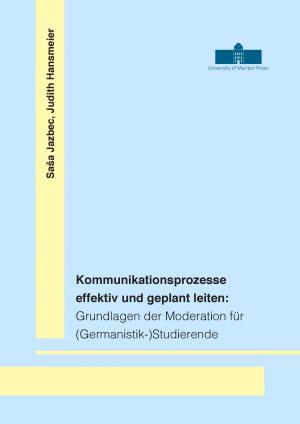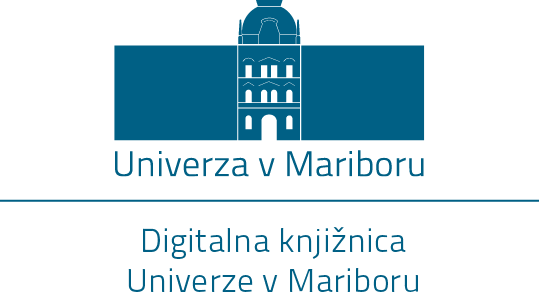Kommunikationsprozesse effektiv und geplant leiten: Grundlagen der Moderation für (Germanistik-)Studierende
Ključne besede:
moderacija, komunikacija, metode, študenti in študentke, vodenje pogovorovKratka vsebina
Učinkovito in načrtovano vodenje komunikacijskih procesov: osnove moderiranja za študente in študentke (germanistike). Za učinkovito vodenje komunikacijskih procesov, pogovorov je potrebna intenzivna priprava, ki omogoča pridobivanje specifičnega znanja in ustreznih spretnosti. Priprava mora biti tako vsebinska, organizacijska kot jezikovna oz. tujejezikovna, če ti procesi potekajo v tujem jeziku. Namen pričujočega dela tako ni izobraževanje profesionalnih moderatorjev in moderatork, temveč usposabljanje študentov in študentk (germanistike) za čim bolj učinkovito sodelovanje in vodenje interakcije med ljudmi. Študenti in študentke naj bi se usposobili za ciljno, tekoče in kompetentno vodenje pogovorov, ki naj bi jih hkrati znali tudi kritično reflektirati. Teoretična izhodišča, ki so v delu predstavljena, je možno uporabiti v različnih kontekstih, npr. v univerzitetnem, znanstvenem, poklicnem in tudi privatnem. V delu so tako predstavljeni temeljni teoretski vidiki posebne vrste komunikacije, tj. moderacija, ki jih smiselno dopolnjujejo določena orodja in metode. Študenti in študentke te metode in orodja preizkusijo, reflektirajo in tako gradijo in izgrajujejo svojo moderacijsko kompetenco.
Um effektive Kommunikationsprozesse gestalten und erfolgreich Gespräche führen zu können, braucht man eine intensive inhaltliche, organisatorische und (fremd-)sprachliche Vorbereitung, deren Ziel es ist, sich spezifisches Wissen und relevante Fertigkeiten anzueignen. Das Anliegen dieses Werkes ist es explizit nicht, professionelle Moderator*innen auszubilden, sondern Studierende dazu zu befähigen, an zwischenmenschlicher Interaktion effektiver teilnehmen zu können. Sie sollen in der Lage sein, Gespräche reibungslos, zielorientiert und kompetent auszuführen und Interaktionsprozesse kritisch zu reflektieren. Die vorgestellten Theorien und Konzepte sind dabei auf unterschiedliche Kontexte im universitären, wissenschaftlichen, beruflichen, aber auch privaten Kontext anwendbar. Als Grundlage wird auf grundlegende theoretische Aspekte der speziellen Art der Kommunikation, der Moderation, eingegangen. Zusätzlich werden konkrete Tools und Methoden bearbeitet, praktisch ausprobiert und reflektiert, mit denen man die Moderationskompetenz ausbauen kann.
Prenosi






